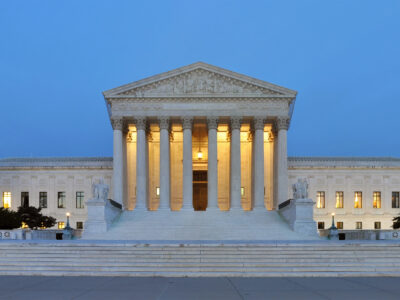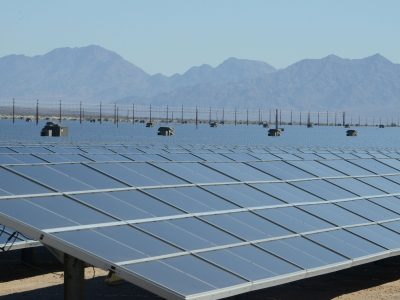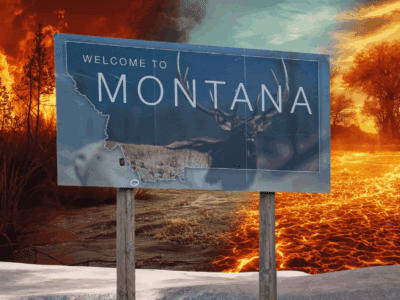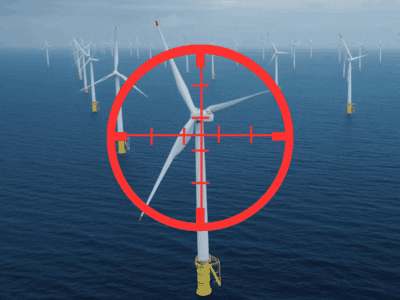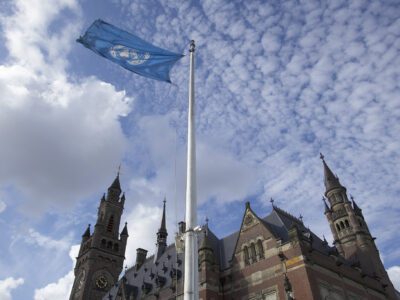Litigation
The Tariff Case & Environmental Law
The Court’s ruling could open doors legally for some future environmental actions.
In passing a new statute, is Congress endorsing judicial rulings under the old one? Do restrictions on the regulatory powers of administrative agencies apply to foreign affairs or Presidential actions? Can courts review a President’s emergency actions? The oral argument in the Trump tariff case will provide clues into the Justice’s thinking on these key issues. The ultimate decision will have implications on other topics like environmental law. Here’s a roadmap to the issues.
CONTINUE READINGA Strangely Important Case about… Boilers?
UCLA Law’s clinic files Ninth Circuit brief in defense of core air pollution control authority.
When I think about sources responsible for LA’s air pollution, I don’t first think about water heaters, boilers, and other medium-scale appliances. But it turns out that appliances that burn natural gas to heat water are, in aggregate, an incredibly significant source of nitrogen oxides (NOx), an air pollutant that worsens smog and causes serious …
Continue reading “A Strangely Important Case about… Boilers?”
CONTINUE READINGFirst Monday? More Like ‘First Moanday.’
Since conservatives got a supermajority on the Supreme Court, it’s been on an anti-environmental tear.
Never say never. Maybe someday the Court will surprise us with a big win for the environment. But it would be foolish to count on that. We can also hope that the Court will do other good things, such as reining in Trump’s executive overreach. But it would be foolish to count on the Court to take a stand in favor of environmental protection.
CONTINUE READINGThe Color PURPA
A Win for Solar– And a Glimpse of Life After Chevron
The majority in a recent case — an Obama appointeet and a Trump appointee — ruled in favor of renewable energy. Even without Chevron deference, they were able to conclude that the statute favored solar producers. And unlike a win under Chevron, this one can’t be reversed by a more conservative agency — it’s etched in stone.
CONTINUE READINGYoung Climate Plaintiffs Won Big in Montana. Can They Again?
The Drain is a weekly roundup of environmental and climate news from Legal Planet.
One of the biggest climate victories to date belongs to 19-year-old Eva Lighthiser and the other Montana youth climate plaintiffs who won their landmark case against state officials and saw it upheld in the state Supreme Court. Now, some of those same young people — Lighthiser included — are headed back to court next week …
Continue reading “Young Climate Plaintiffs Won Big in Montana. Can They Again?”
CONTINUE READINGTrump’s War on Wind is Dumb. It also Makes Sense.
The Drain is a weekly roundup of environmental and climate news from Legal Planet.
The Trump administration’s attack on wind energy feels dumber and dumber every day. Let’s see if we can make it make some sense. After that, the major headlines of the week. Last Friday, his Transportation Department withdrew $679 million for offshore wind projects at 12 ports. Last month, the administration sent a stop-work order to …
Continue reading “Trump’s War on Wind is Dumb. It also Makes Sense.”
CONTINUE READING“A Historic Day”: the World Court’s Big Climate Opinion
UCLA Law’s Anna Spain Bradley offers takeaways from the International Court of Justice’s Advisory Opinion on the Obligations of States in Respect of Climate Change.
It’s been a long time coming but nations of the world officially have a legal obligation to limit their emissions of greenhouse gases or else pay reparations for the harms of climate change. That was the unanimous opinion handed down yesterday by the 14 judges on the International Court of Justice, sometimes called the World …
Continue reading ““A Historic Day”: the World Court’s Big Climate Opinion”
CONTINUE READINGThe Environment and the Rule of Law
Without the rule of law, environmental protection has no chance of succeeding.
It’s no coincidence that the environment and the rule of law are both targets, because environmental protection is particularly dependent on the legal system for support. There is a lot of wisdom to the slogan, “The Earth needs a good lawyer.”
CONTINUE READINGDon’t Panic About the Supreme Court’s Ruling on Universal Injunctions
The Court left open a variety of workarounds. At least for the now.
In a case involving birthright citizenship, Trump v. CASA, the Court limited the power of judges to issue universal injunctions that protect everyone subject to an illegal government policy. President Trump hailed this outcome as a great victory, and it does provide more maneuvering room for him and future presidents. But the Court’s reasoning does not implicate most judicial rulings about the legality of regulations. The Court also left open some important questions that will be furiously litigated in the lower courts or the Supreme Court itself.
CONTINUE READINGThe “Big Beautiful Bill” is One Damn Dirty Deal
The Drain is a weekly roundup of environmental and climate news from Legal Planet.
My family is about to take a road trip. Out our window we will see beaches, lakes, and a whole lot of public land that would be eligible to be sold off to developers and corporations under the recent version of a budget bill that Republicans want to rush through this week. Welcome to The …
Continue reading “The “Big Beautiful Bill” is One Damn Dirty Deal”
CONTINUE READING





